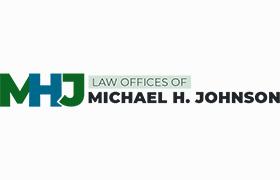Lake Worth Bankruptcy & Debt Lawyer, Florida
Sponsored Law Firm
-
 x
x

Click For More Info:
-
Law Offices Of Michael H. Johnson, P.A.
3601 W. Commercial Blvd Suite 31 Fort Lauderdale, FL 33309» view mapBankruptcy & Debt Experienced Legal Guidance
I know how important getting out of debt can be, and I’m committed to providing innovative, effective solutions to help you have a brighter future.
800-773-6441
Tania Ochoa
✓ VERIFIEDProudly taking General Bankruptcy Matters, Chapter 7 Bankruptcy, and Chapter 13 Bankruptcy cases from West Palm Beach Florida.
Michael K. Bregman
✓ VERIFIEDThe Law Offices of Michael K. Bregman, P.A. has helped thousands of clients that have been injured due to the negligence of others. We are available ... (more)
Bruce S. Rosenwater
✓ VERIFIEDAttorney Bruce S. Rosenwater was born in Cleveland, Ohio. He is a veteran attorney, having assisted Floridians for more than 30 years. Bruce founded a... (more)
David Philip Slater
✓ VERIFIEDDavid P. Slater has over 30 years of litigation and general practice experience and handles all accident cases from investigation through trial, inclu... (more)
Myles Brian Schlam
✓ VERIFIEDMyles Schlam is a practicing lawyer in the state of Florida. He received his J.D. from St. Thomas University School of Law in 2002.
Mark R. Osherow
✓ VERIFIEDMark R. Osherow is a Florida Bar Board Certified Specialist in Business Litigation with over 30 years of experience. He has practiced for most of thos... (more)
Toni B. Ross
✓ VERIFIEDAttorney Ross is a practicing lawyer in the state of Florida.
 Michael Johnson Fort Lauderdale, FL
Michael Johnson Fort Lauderdale, FL AboutLaw Offices Of Michael H. Johnson, P.A.
AboutLaw Offices Of Michael H. Johnson, P.A.







